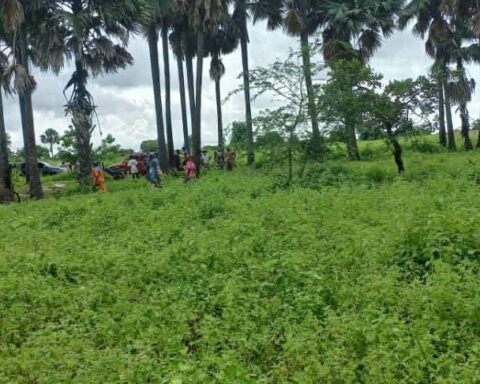By: Haddy Touray
Dr. Mustapha Manneh, Head of Disease Prevention and Control at the Department of Livestock Services (DLS), has warned that the growing threat of antibiotic resistance poses a serious challenge to animal production, food safety, and public health.
Dr. Manneh made the remarks on Saturday, November 1, 2025, at The Gambia College while delivering the keynote address during events marking World Animal Day.
“A key aspect of protecting both animal and human health is the responsible use of antibiotics. The growing threat of antibiotic resistance poses a serious challenge to animal production, food safety, and public health,” Dr. Manneh told a gathering of animal welfare advocates.
He cautioned that misuse and overuse of antibiotics in animals not only compromise their effectiveness but also endanger human lives. “It is estimated that by 2050, over 10 million people could die from antimicrobial resistance,” he added.
Dr. Manneh said the Department of Livestock Services continues to monitor the increasing use of critically important antimicrobials, including chloroquine, starch, and four generations of cephalosporins — all vital for both human and animal health.
He also noted a rise in the use of polystyrene, classified by the World Health Organization in 2016 as a highest-priority critically important antimicrobial. This, he says, reinforces the department’s focus on alternatives such as preventive vaccination, good biosecurity, and proper husbandry practices to reduce reliance on antibiotics and strengthen resilience against diseases.
“Vaccination in particular remains one of the most powerful tools for protecting animal health and welfare. By preventing diseases before they occur, vaccination minimizes suffering, enhances productivity, and safeguards livelihoods,” Dr. Manneh said. “It is also essential in reducing dependence on antimicrobials and slowing the development of antimicrobial resistance. I would also like to emphasize the interdependence between human health, animal health, and environmental health.”
Dr. Manneh also drew attention to an outbreak of red-banded fever in Senegal, a zoonotic disease affecting cattle, sheep, and goats. “As of October 28, 2025, Senegal has confirmed 322 human cases, resulting in 28 deaths. This is a call for vigilance across The Gambia,” he warned.
He confirmed that on October 24, 2025, the DLS detected red-banded fever in a flock of 44 animals in the North Bank Region, reporting four infected cases. He urged livestock owners to watch for key symptoms, including retained placenta, and to report any signs promptly to veterinary professionals.
“This situation requires heightened awareness and timely reporting to protect both animals and humans,” Dr. Manneh emphasized.
The post Doctor Says Antibiotic Resistance Threatens Animal Production appeared first on .
By: Haddy Touray Dr. Mustapha Manneh, Head of Disease Prevention and Control at the Department of Livestock Services (DLS), has…
The post Doctor Says Antibiotic Resistance Threatens Animal Production appeared first on .





